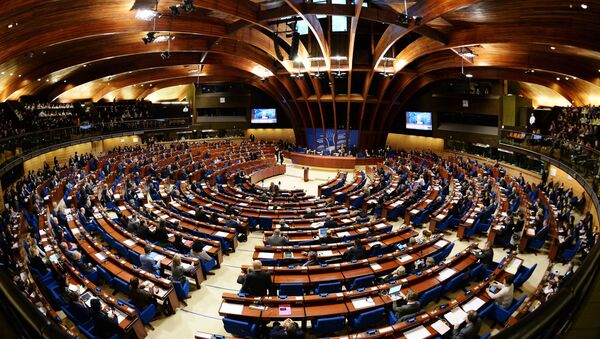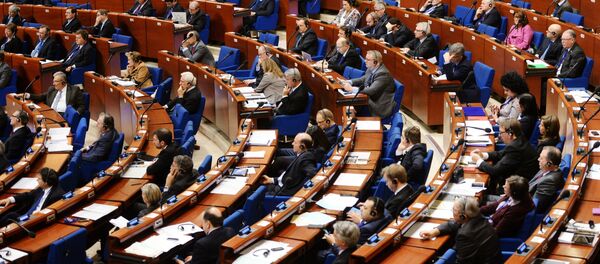"It is now clear that the rapporteur, the head of the monitoring committee limited himself with three sets of sanctions that are least painful for us," Slutsky said.
The Austrian delegate and of the head of monitoring committee, Stefan Schennach, suggested three limitations on Russia, banning it from being appointed a rapporteur and participating in election monitoring committees, as well as prohibiting Moscow from representing PACE in other bodies such as the Venetian Commission.
However, Schennach’s resolution preserves Russia's voting rights and participation in the PACE's governing bodies.
"Therefore, we have two sessions or six months to improve cooperation in a format that is acceptable to the assembly," Slutsky added.
Russia's voting rights were suspended in the wake of Crimea's reunification with the country. The Russian delegation then walked out of PACE's spring session and refused to attend the summer session in protest.
Last week, the chairman of Russia's lower parliamentary house, Sergei Naryshkin, said Russia could suspend its work at PACE and even reconsider its membership in the Council of Europe, if the Russian delegation continued to be deprived of voting rights.
PACE's five-day winter session started earlier on Monday. The meeting's agenda is expected to include the Russian delegation's credentials, the humanitarian situation in Ukraine and the January 7 terrorist attacks in Paris.



